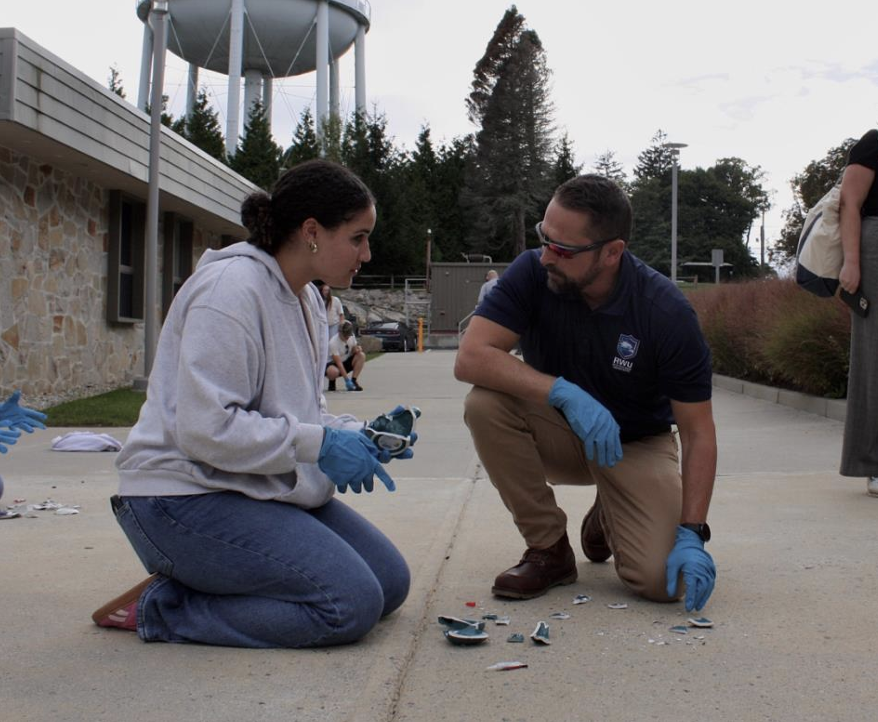Last semester I wrote an article that introduced a big change in The School of Humanities, Arts, and Education, otherwise known as SHAE. It went into depth about how SHAE wasn’t getting enough enrollment from upcoming college students here at Roger Williams University and how because of this, some majors such as Philosophy, Foreign Language, and Performing Arts would have to be ruled out of the curriculum for the future. This year, I just wanted to give an update on where everything stands and what is important moving forward.
In a quick overview for those of you who aren’t up to date on this topic, SHAE was rumored to have some possible majors shutting down at the end of the 2022-2023 academic year due to a lack of interest in the areas mentioned above. Schools nationwide including RWU conduct a study that gives them a list of what majors and minors worked well in the previous years and semesters and which ones should be cut due to their inactivity or lack of interest among students. Having a major available that gets no attention is a risk for both the university and faculty and is also a waste of resources that could be used in other majors or other areas of study.
I spoke to the Provost and Senior Vice President for Academic Affairs, Margaret Everett, last year and she stated that, “If we do not believe we can sustain a program due to very low enrollment, we will develop a plan to teach them out without impacting current students.” Currently, RWU is expecting to continue to teach these subjects as part of minors and for their general education programs, such as the ability to still study it for a minor. The information that was held within these classes for a major will be compacted into classes that give you a taste of a little bit of everything.
Making a decision like this does not only go through the Provost though. In cases like this there are multiple people that are involved in the way these areas of study should be run and what makes the most sense for the university. In my most recent communication with Margaret Everett, she said, “Last year, we followed an extensive process from September through May to review our portfolio of undergraduate majors, seeking input from program faculty, the deans, and our colleagues in admissions. I was also able to speak with the Student Senate twice about this review process. We shared data and considered feedback as we developed and refined recommendations for changes to our list of majors. Final recommendations were presented to the Board of Trustees in May, and the board unanimously approved the recommendations.”
This process has taken many years of watching changes in enrollment patterns and finding what is likely to work out for the benefit of the student body.
Upon this research, these groups have found more majors that will more likely than not be sunsetted in the coming years. These majors include Classics, Cultural Studies, Modeling and Simulation, Performing Arts, Web Development, Preservation Studies, and Theatre. Although Performing Arts and Theatre will still be removed from the curriculum, RWU will retain Dance and Music as majors and put Theatre as a minor selection. This means that Theatre will still have opportunities to create and perform productions for both current majors and non-majors but moving forward it will become a minor. Margaret also stated that “This academic year, we are continuing our review of Philosophy and our foreign language offerings to determine how best to sustain this curriculum while managing our resources effectively.” I stated before that these two groups were in a danger zone of being removed as a major, but the update is that these are still in revision.
On the opposite hand though, this impact came with positive effects as well. Upon review of this study, RWU officials and faculty identified many other majors that should be prioritized for further investment in order to support continued program growth. Those programs include RWU’s largest majors like Marine Biology, Architecture, Criminal Justice, and Psychology, as well as growing majors like Forensic Science. Margaret said that “This process has not resulted in the elimination of any faculty positions” and “the administration indicated our intention to retain faculty and to use this process to guide future investment in new faculty, not to eliminate current faculty.” This is a step in the right direction to further the success of students and to make it easier for current faculty to have a wider array in their fields.
Although this may come as a shock to students here, there are still many open options for your voice and opinions to be heard.









